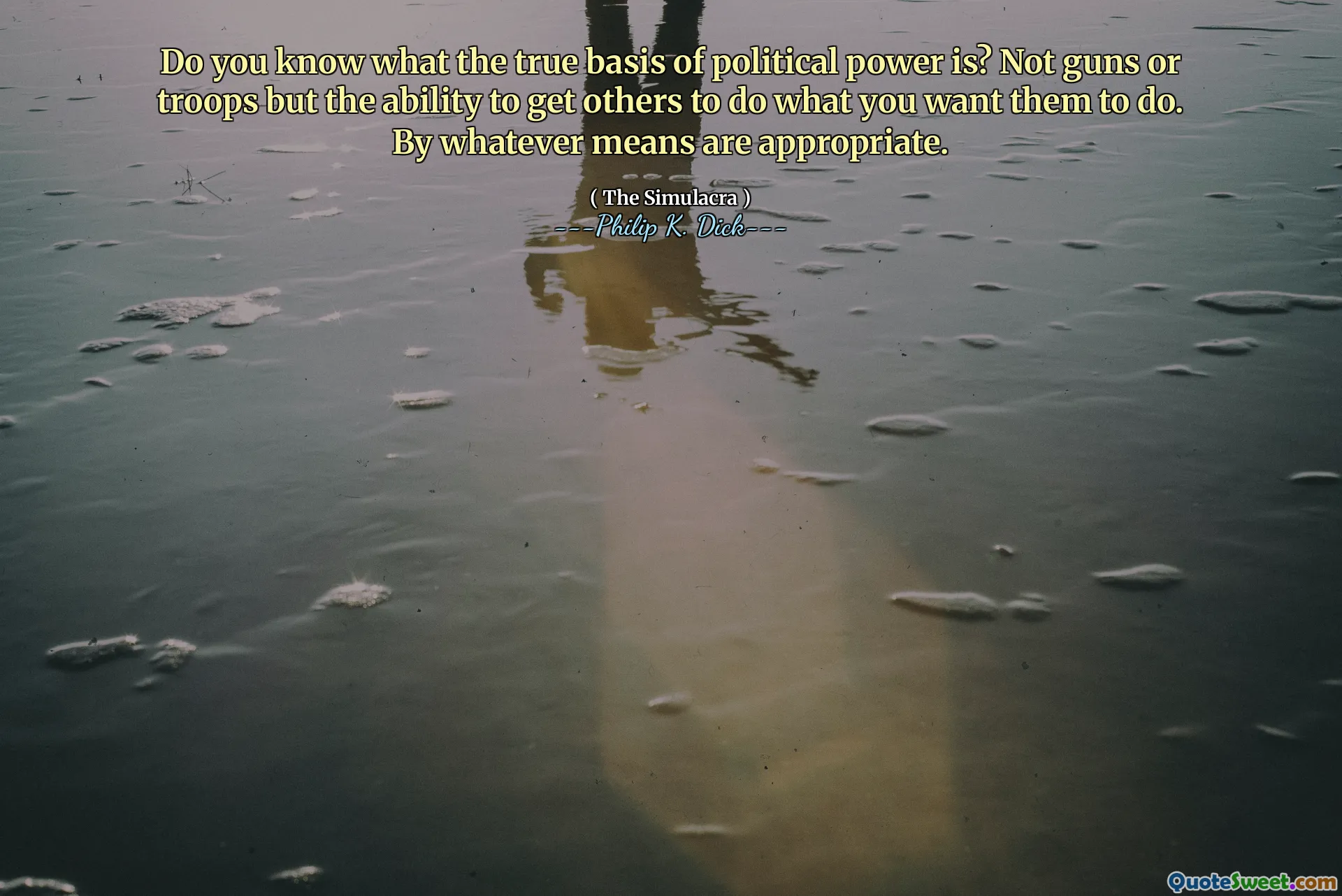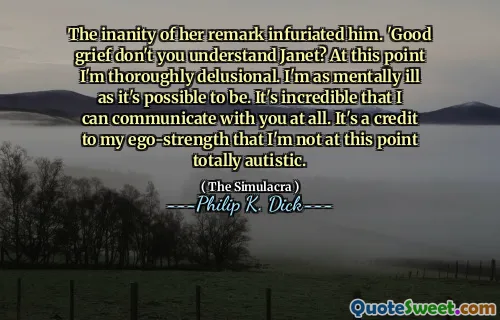
Do you know what the true basis of political power is? Not guns or troops but the ability to get others to do what you want them to do. By whatever means are appropriate.
The essence of political power, as articulated in Philip K. Dick's "The Simulacra," lies not in physical force or military might but in the skill to influence and persuade others to act according to one's will. This perspective shifts the focus from traditional displays of power to the subtler art of manipulation and coercion. It's an exploration of how authority operates in more intangible ways beyond mere violence.
This concept underscores the importance of psychological tactics and social dynamics in governance. True power is about control through understanding and persuasion, demonstrating that success in leadership often comes from the ability to effectively motivate and rally people towards a specific goal, regardless of the means employed to achieve that influence.









